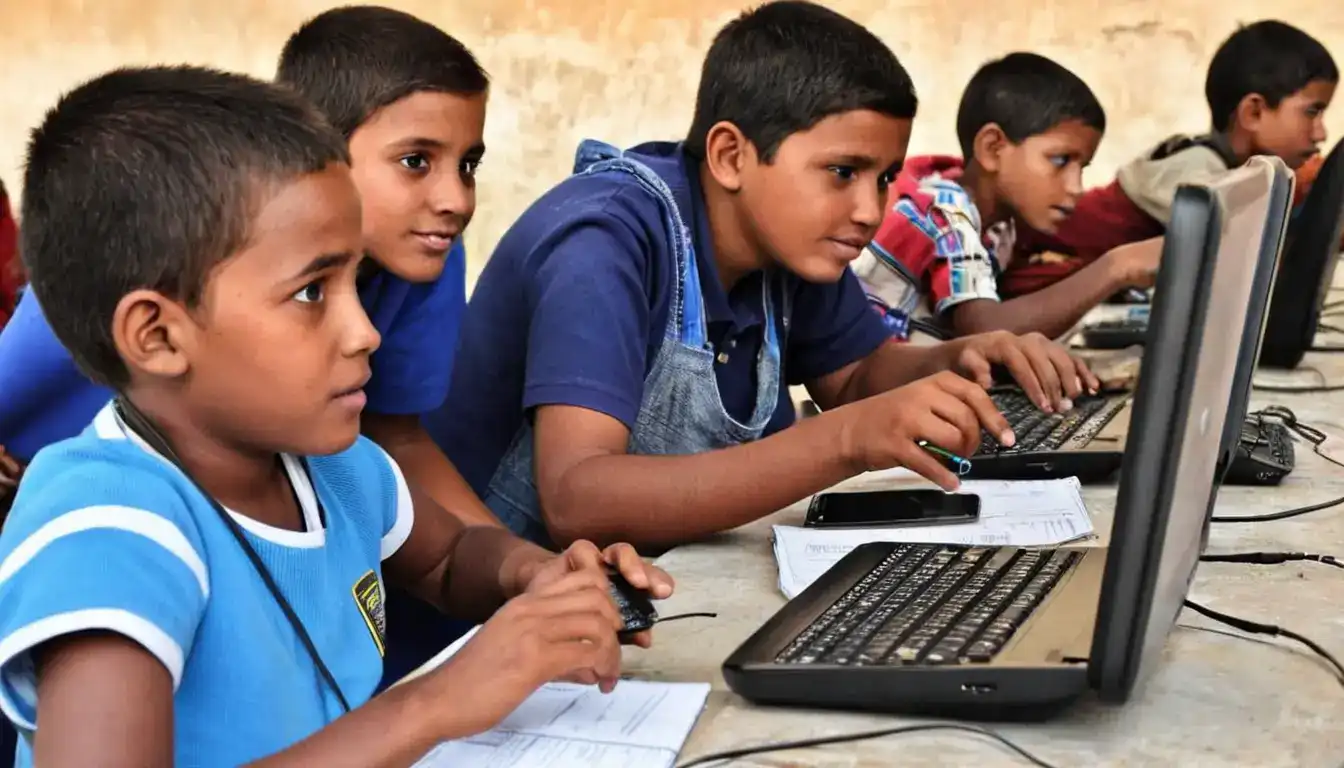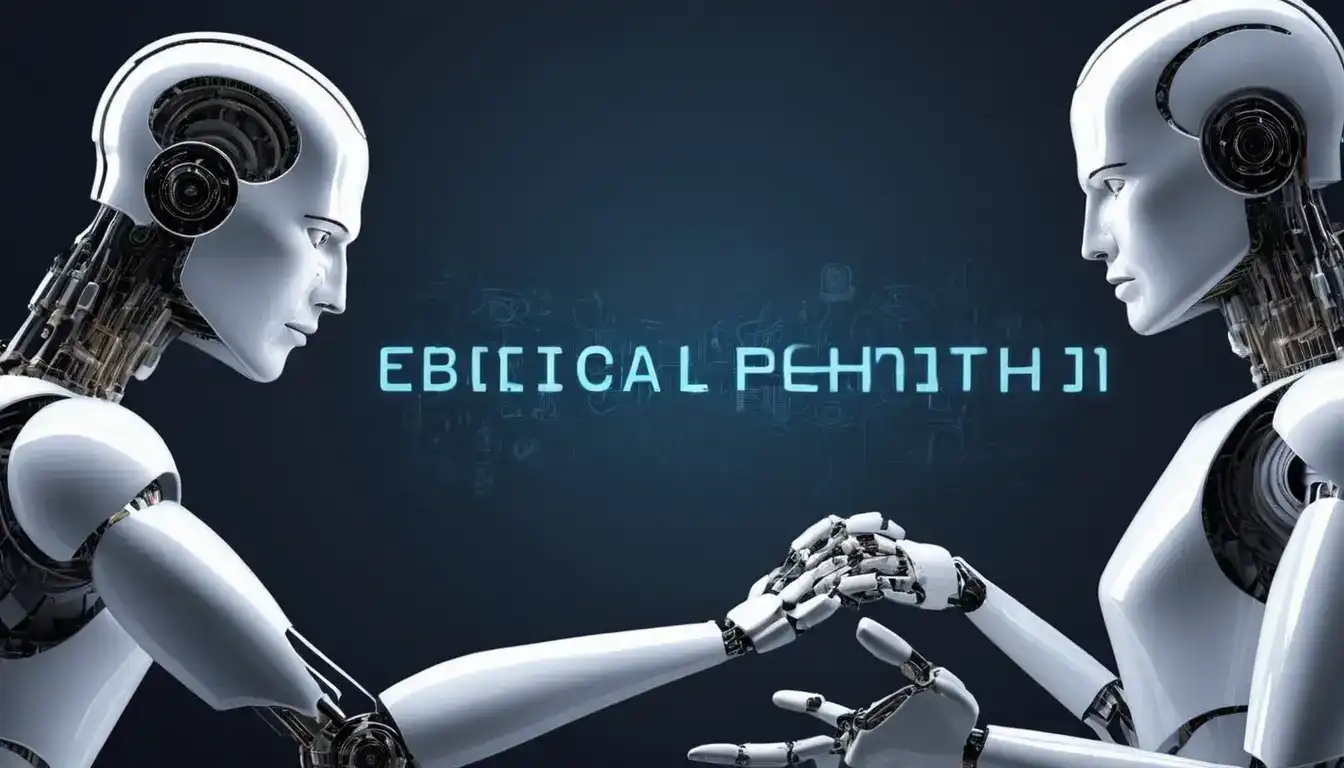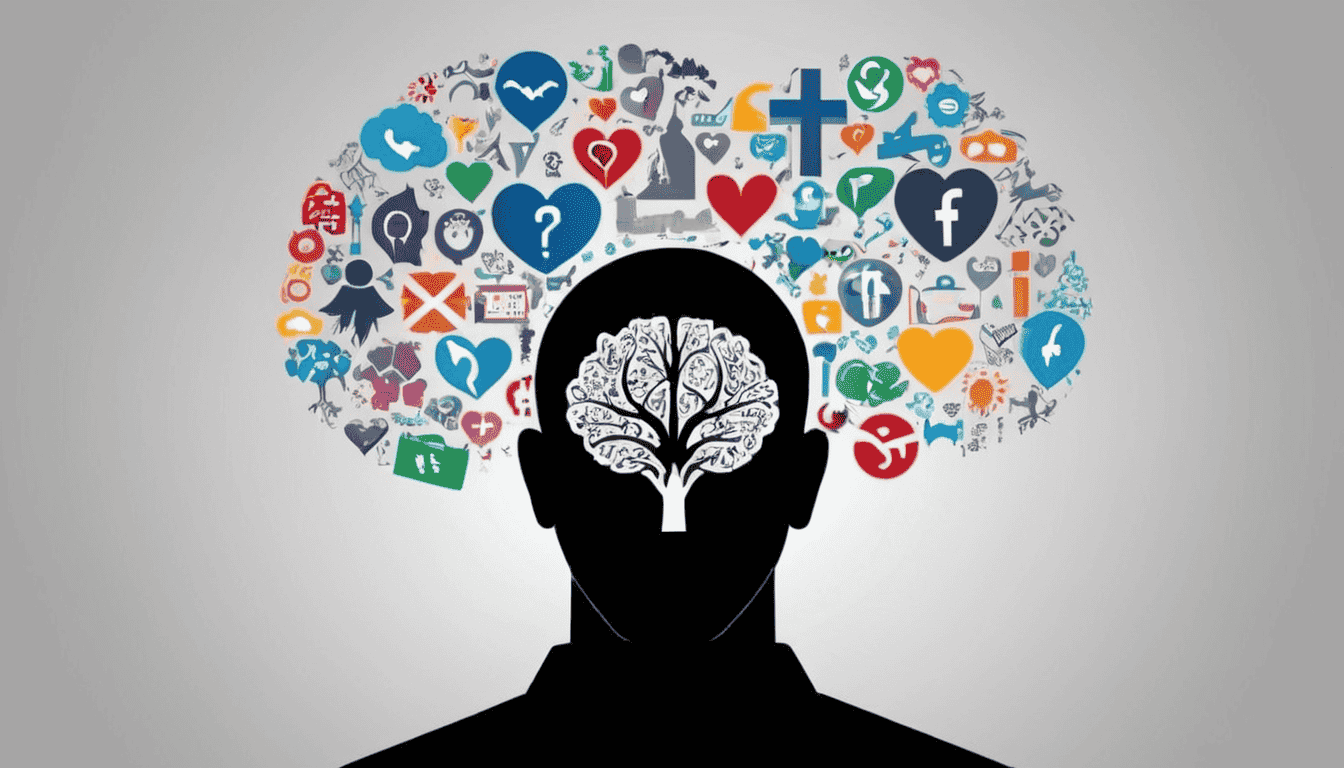Future of Work: AI, Automation, Humans
Emily Willis

Photo: Future of Work: AI, Automation, Humans
The future of work is a dynamic landscape, constantly reshaped by technological advancements. Artificial intelligence (AI) and automation are at the forefront of this transformation, sparking both excitement and apprehension about their impact on human roles. However, the prevailing narrative suggests that the future isn't about machines replacing humans entirely, but rather about a powerful synergy where human ingenuity and machine intelligence converge. This article will explore the evolving nature of work, the challenges and opportunities presented by AI and automation, and the essential skills humans will need to thrive in this new era.
The AI and Automation Revolution: A New Era of Efficiency
Artificial Intelligence (AI) refers to the simulation of human intelligence in machines, enabling them to learn, reason, problem-solve, perceive, and understand language. Automation, on the other hand, involves using technology to perform tasks with minimal human intervention. Together, these technologies are revolutionizing industries by taking over repetitive, time-consuming, and mundane tasks, leading to unprecedented levels of efficiency and productivity.
The adoption of AI in businesses is accelerating rapidly. As of 2025, approximately 78% of global companies are actively using AI in at least one business function, a significant increase from previous years. This widespread integration spans various sectors, including finance, healthcare, manufacturing, and customer service. For instance, AI algorithms can process and analyze vast amounts of data at remarkable speeds, uncovering insights that would be impossible for humans alone. In customer service, AI-powered chatbots handle routine queries, freeing up human agents to address more complex and nuanced customer needs, thereby improving response times and satisfaction. In manufacturing, AI-powered robots enhance precision and efficiency, while in human resources, AI streamlines recruitment by screening resumes and conducting initial interviews, reducing time-to-hire.
This technological shift is not merely about incremental improvements; it's about a fundamental rethinking of how work is performed. Companies are leveraging AI to automate tasks, improve decision-making, and enhance the overall employee experience.
Navigating Job Displacement and Evolution
The rise of AI and automation often brings concerns about widespread job displacement. While it's true that AI has the potential to automate up to 300 million jobs globally, particularly in roles involving repetitive or predictable tasks, the narrative is more nuanced. Experts suggest that the future of work is less about job elimination and more about job transformation and creation.
The World Economic Forum's Future of Jobs Report 2025 indicates that while AI may displace 75 million jobs globally by 2025, it is also projected to create 133 million new jobs, resulting in a net gain of 58 million jobs worldwide. This means that while some roles may diminish, new opportunities requiring advanced technical and human skills are emerging. These new positions include data scientists, AI ethicists, and machine learning engineers—roles that were virtually non-existent a decade ago.
Industries less obviously exposed to AI, such as mining and agriculture, are also increasing their AI usage, demonstrating the pervasive nature of this transformation. The impact on unemployment rates will vary by region and industry, with sectors like manufacturing potentially experiencing significant shifts. However, the overall trend points towards an augmentation of human capabilities, where AI enhances productivity and enables workers to focus on higher-value tasks.
The Indispensable Human Element: Skills AI Can't Replicate
Despite the impressive capabilities of AI and automation, certain human attributes remain irreplaceable. These are the "soft skills" or "power skills" that distinguish human intelligence and will become increasingly valuable in the AI era.
Humans excel in areas where AI currently falls short:
- Creativity and Innovation: While AI can generate ideas based on existing data, it lacks genuine ingenuity and the ability to conceptualize truly novel solutions or artistic expressions. Artists, for example, are using AI tools to generate concept variations, but the human artist maintains creative control and vision.
- Critical Thinking and Complex Problem-Solving: AI is excellent at data analysis, but it struggles with nuance, context, and the ethical dilemmas inherent in complex real-world problems. Human critical thinking is essential for interpreting AI's findings, identifying biases, and making informed decisions that require judgment beyond algorithms.
- Emotional Intelligence and Empathy: Understanding and responding to human emotions, building trust, and fostering genuine connections are uniquely human strengths. These skills are crucial for leadership, teamwork, customer relationships, and patient care, areas where AI cannot fully replicate human abilities.
- Ethical Reasoning and Judgment: As AI becomes more integrated into decision-making processes, the need for human oversight to ensure fairness, accountability, and ethical considerations becomes paramount. Humans are vital for addressing issues like algorithmic bias and data privacy.
- Collaboration and Communication: The ability to work effectively in teams, articulate complex ideas, and persuade others are fundamental human skills that drive innovation and shared success.
The future workplace will prioritize these human-centric skills, transforming them from "soft" to "essential."
Strategies for Thriving in the AI-Powered Workplace
Adapting to the future of work requires proactive strategies for individuals and organizations alike. The key lies in embracing lifelong learning and fostering human-AI collaboration.
Upskilling and Reskilling: The Cornerstone of Adaptability
The most critical step for individuals is to continuously learn and develop new skills. By 2030, 77% of employers plan to prioritize reskilling and upskilling their workforce to enhance collaboration with AI systems.
-
Identifying In-Demand Skills: Focus on developing skills that complement AI capabilities. These include:
- Digital Literacy: Understanding how to effectively use AI tools and platforms.
- Data Analysis and AI Literacy: While AI analyzes data, humans need to interpret trends, make strategic decisions based on insights, and understand the capabilities and limitations of AI.
- Programming and Automation Tools: Familiarity with languages like Python and tools for Robotic Process Automation (RPA) will be highly sought after.
- Human-Centric Skills: As discussed, creativity, critical thinking, problem-solving, communication, collaboration, and emotional intelligence are paramount.
- Adaptability and Flexibility: The ability to quickly learn new technologies and adjust to changing work environments is a survival skill in the AI era.
-
Resources for Learning: Individuals can pursue online courses, certifications, workshops, and corporate training programs to acquire these skills. Many organizations are investing in AI training programs to equip workers.
Embracing Human-AI Collaboration: A New Synergy
Instead of viewing AI as a competitor, it's crucial to see it as a powerful collaborative tool. This human-AI partnership, often called "collaborative intelligence," combines machine efficiency with human creativity and empathy.
- AI as an Assistant or Co-pilot: In many scenarios, AI acts as an assistant, automating mundane tasks and providing data-driven insights, allowing humans to focus on strategic initiatives and complex problem-solving. Examples include AI-powered tools for copywriting, data analysis, or even generating initial code.
- Human-in-the-Loop Systems: In high-stakes situations, humans maintain ultimate control and oversight. For instance, in healthcare, AI analyzes medical images, but medical professionals review every conclusion to make final diagnostic decisions. Similarly, financial trading algorithms operate within parameters, with human risk managers intervening when thresholds are exceeded.
- Symbiotic Collaboration: This is the most advanced form, where humans and AI work as equal partners, dynamically sharing responsibilities based on their strengths. Microsoft's "Copilot" tools, which suggest edits or code, exemplify this dynamic back-and-forth.
Companies like Unilever, IBM, and Hilton are already successfully integrating AI into their HR processes, using it for everything from recruitment to enhancing employee experience, demonstrating practical human-AI collaboration.
Ethical Considerations and the Path Forward
The widespread adoption of AI in the workplace also brings significant ethical considerations that must be addressed proactively.
- Bias and Discrimination: AI systems learn from historical data, which can perpetuate existing human biases, particularly against women and minorities. This can lead to discriminatory outcomes in areas like hiring and performance evaluations. Organizations must actively work to mitigate bias in AI algorithms and ensure fairness.
- Data Privacy and Consent: AI systems often collect and analyze vast amounts of personal data. Ensuring data privacy, obtaining informed consent, and implementing robust data security protocols are critical to protect individuals' rights.
- Transparency and Accountability: The "black-box" nature of some AI tools, where decision-making processes are not easily interpretable by humans, raises concerns about accountability. Organizations need to strive for transparency in AI algorithms and decision-making, clearly defining who is responsible for AI system outcomes.
- Job Displacement and Fair Distribution of Benefits: As AI increases productivity, there's an ethical imperative to ensure the benefits are distributed fairly and that support is provided for displaced workers, including retraining and education opportunities.
Addressing these challenges requires
Latest ✨
View AllUnlock your CRM's full potential! Go beyond basics to transform it into a strategic asset for unparalleled business success and customer loyalty.
Emily Willis
communication, flying qudits are poised to revolutionize the way we transmit and process information. With the potential for unbreakable encryption, blazing-fast quantum internet, and advancements in various fields, the future of flying qudits looks promising. While there are challenges to overcome, researchers are actively working on refining the technology. Overall, flying qudits offer a glimpse into a quantum future that is faster, safer, and filled with endless possibilities.
Emily Willis
Living mindfully involves being present in the moment, cultivating awareness, and making conscious choices that increase well-being and fulfillment. Practicing mindfulness can help reduce stress, increase mental clarity, and improve overall quality of life.
Emily Willis
enduring appeal of video games, highlighting their ability to transport players to fantastical realms, challenge their minds, and foster connections with others. It explores the magic of immersive worlds, the vast array of genres available, and the social power of gaming.
Emily Willis
Business
View All
July 9, 2025
Coyyn.com Your Digital BusinessUnlock digital business success with Coyyn.com! This innovative platform simplifies launching, managing & scaling your online venture with secure, advanced tool...
Emily Willis

June 8, 2025
Business Networking: Connect & GrowUnlock professional success! Learn actionable strategies for effective business networking to expand opportunities, build credibility, and drive career growth.
Emily Willis

June 8, 2025
The Future of Business: Key TrendsExplore critical trends shaping the future of business, with AI driving efficiency, innovation, and growth. Adapt now for success beyond 2025.
Emily Willis
Economy
View AllDiscover expert-level investment banking services, M&A advisory, and capital raising strategies designed to maximize corporate financial growth.
Read MoreNavigate financial markets confidently! This guide demystifies risk management, helping you protect investments, enhance stability, and secure your financial fu...
Read MoreExplore economic blocs: powerful alliances shaping global trade, fostering cooperation & competition. Understand their types & impact on your world.
Read MoreEntertainment
View All
July 4, 2025
Double the FunDiscover how to "Double the Fun" by amplifying everyday joy and maximizing satisfaction from your experiences. Boost happiness & well-being!
Emily Willis

July 5, 2025
Corner Entertainment GemUnlock your home's potential! Discover how a corner entertainment gem maximizes space, boosts aesthetics, and transforms overlooked nooks into dynamic hubs.
Emily Willis

July 10, 2025
Are You Not Entertained QueryAre you truly entertained? Explore the psychology and evolution of modern spectacle to find satisfaction amidst endless digital content.
Emily Willis
Health
View AllAchieve radiant, healthy skin with ZO Skin Health. Explore Dr. Obagi's science-backed approach to unlock your glow through correction, prevention & maintenance.
Emily Willis
significance of mental health awareness in today's fast-paced world. It discusses the importance of understanding mental health, breaking down stigma, and promoting positive mental health practices.
Emily Willis
Discover fulfilling healthcare careers at Dignity Health. Explore diverse jobs, compassionate care, and a supportive environment to make a real impact.
Emily Willis
Trending 🔥
View All
1
2
3
4
5
6
7
8
9
10
Lifestyle



Technology
View All
August 4, 2024
Amidst Economic Uncertainty, Businesses Adapt and Innovate for Survival
The business world can be unpredictable, but companies can thrive by embracing adaptation and innovation. Understanding market trends, economic indicators, and global factors is crucial for charting a successful course.

August 5, 2024
The Future of IoT and Its Potential to Improve Quality of Life
The Internet of Things (IoT) is a transformative force that is revolutionizing daily life by connecting devices and enabling them to exchange data autonomously. The growth trajectory of IoT is projected to surpass 75 billion connected devices by 2025, impacting various sectors such as healthcare, smart cities, agriculture, and home automation.

August 4, 2024
Bridging the Digital Divide: Ensuring Everyone Has Access to Technology
we can bridge this gap and create a more inclusive digital landscape.

August 5, 2024
Ethical Challenges in AI Development and Use
Artificial Intelligence (AI) has evolved rapidly from science fiction to reality, offering immense potential but also presenting significant ethical challenges.


















